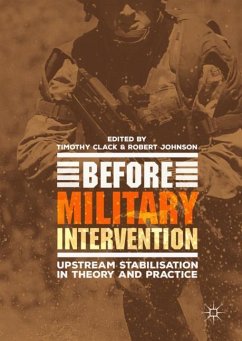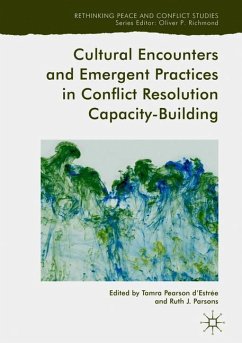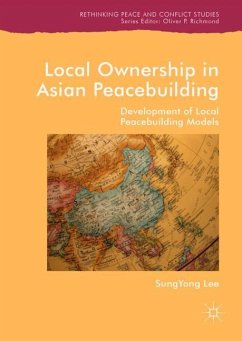
Peace Infrastructures and State-Building at the Margins
Versandkostenfrei!
Versandfertig in 6-10 Tagen
76,99 €
inkl. MwSt.
Weitere Ausgaben:

PAYBACK Punkte
38 °P sammeln!
This book offers a critical examination of 'infrastructures for peace', originally proposed as a framework of conflict transformation. Through an exploration of the statist ideological underpinnings of peace-building, it traces how the concept was transformed by institutional actors - international organisations and states - into a tool to further the state-building goals of liberal peace-building.














